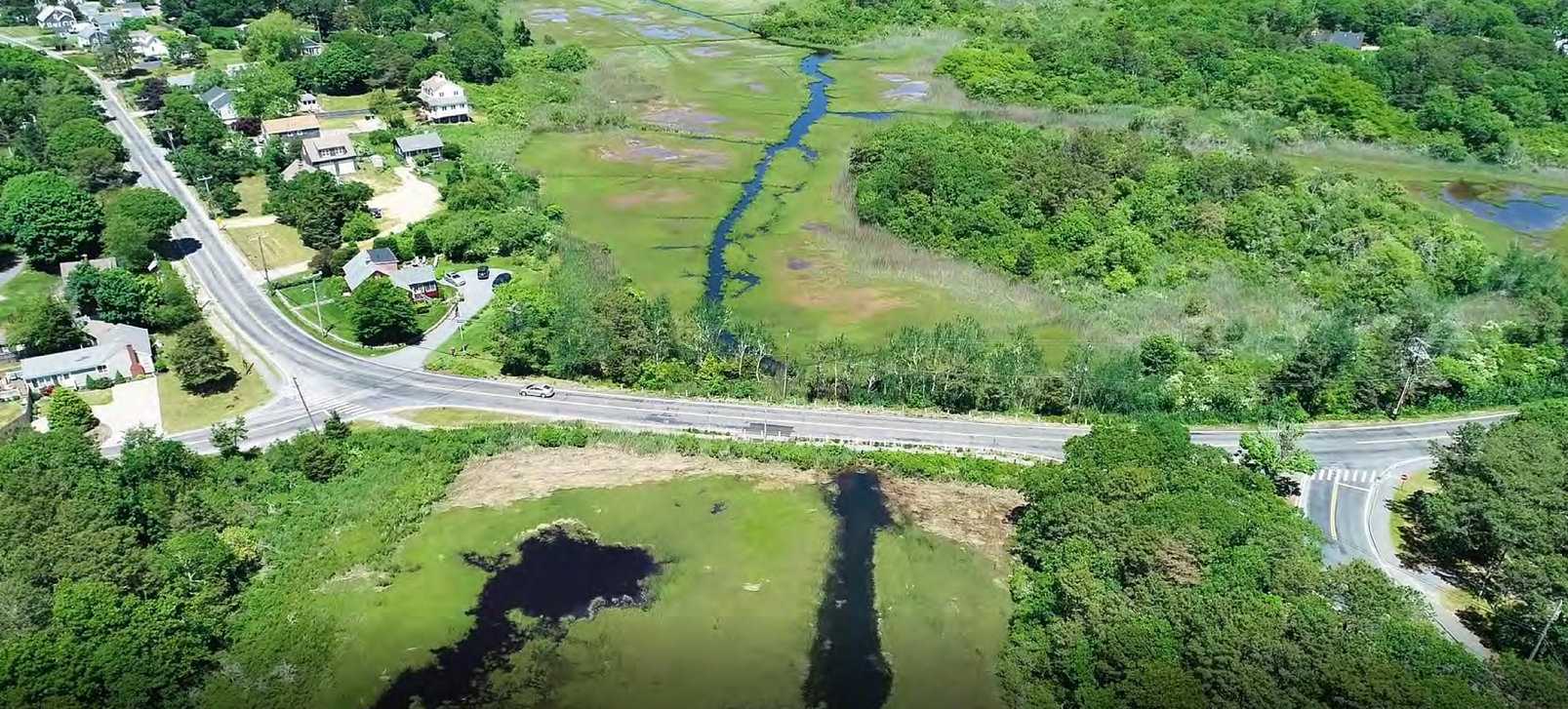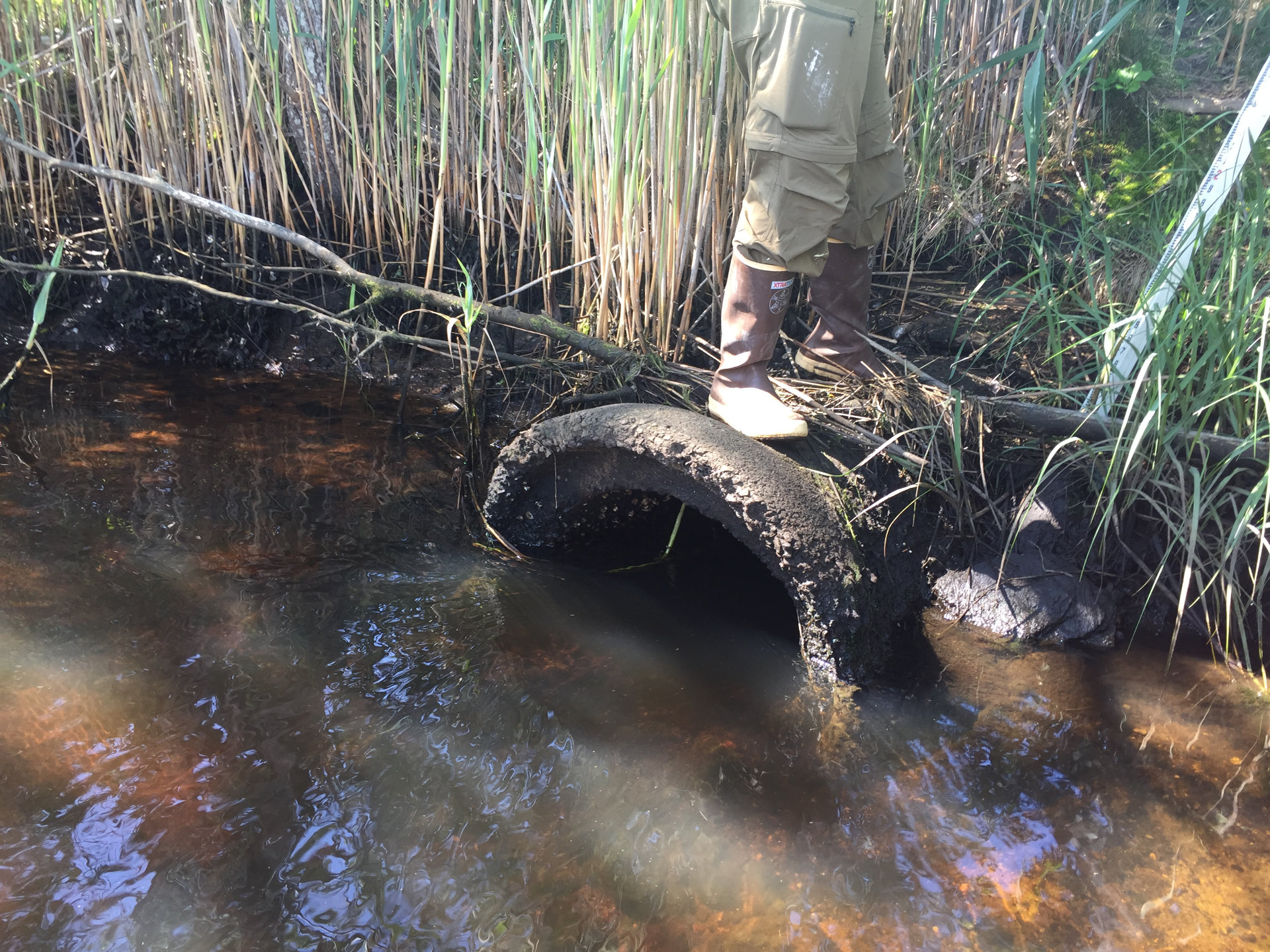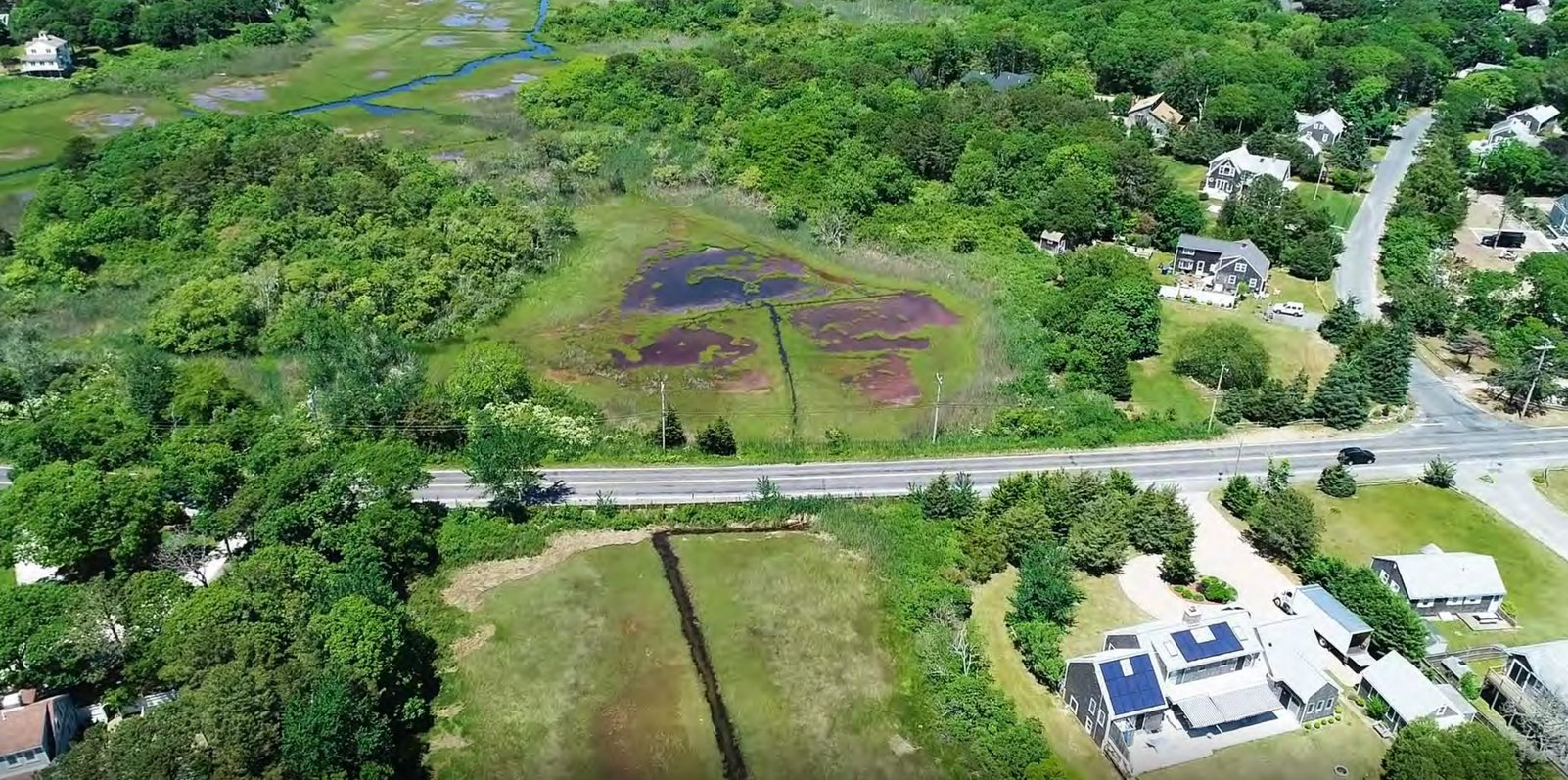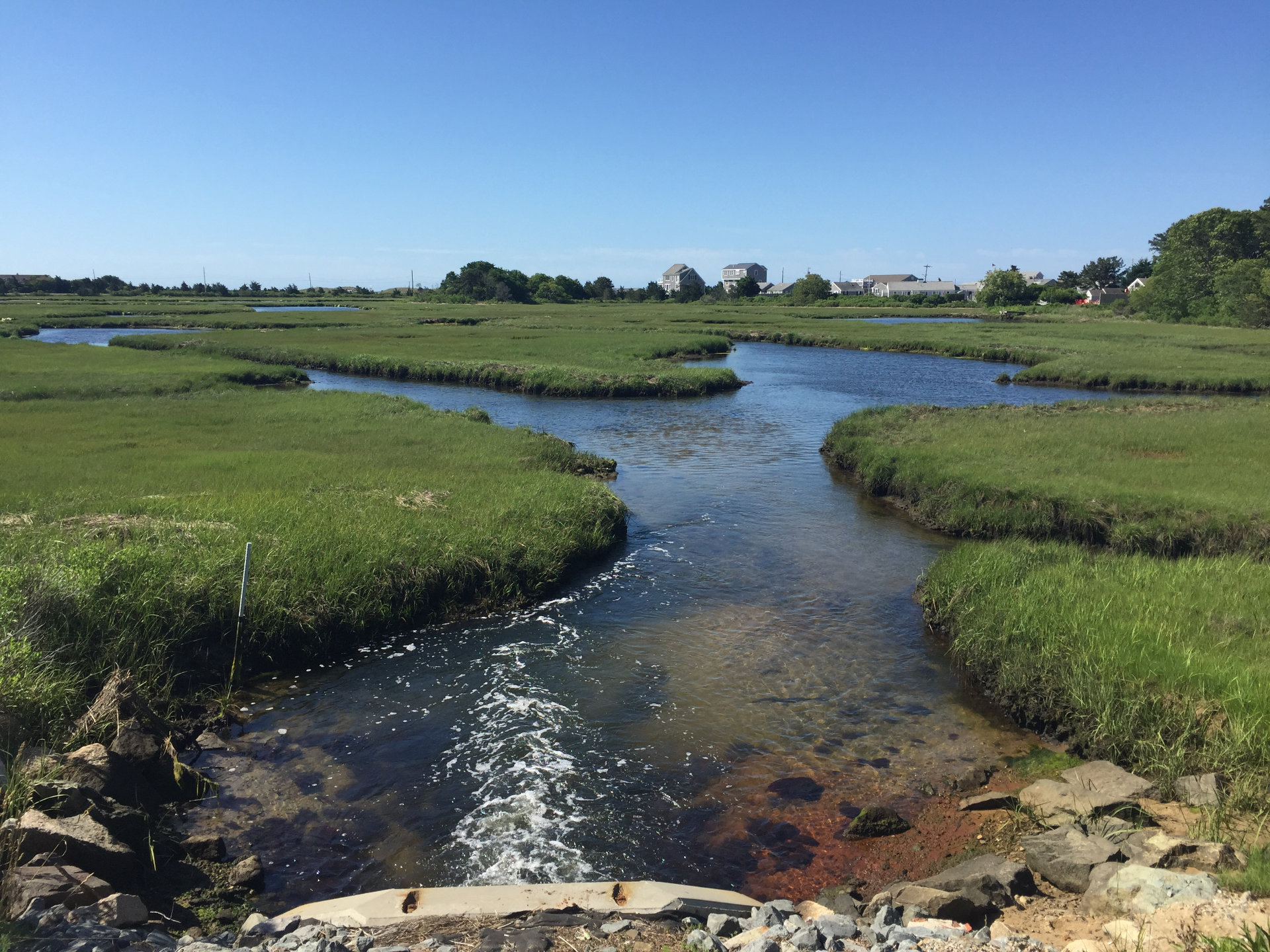Weir Creek Tidal Restoration
Tidal marshes are vital ecosystems on Cape Cod. A healthy salt marsh is important for coastal resiliency – the ability for a coastal region to recover from storms and adjust to sea level rise. These marshes protect inland areas from storm damage and flooding, by physically buffering wave action and acting like a sponge to absorb floodwater. Development that restricts tidal flow negatively impacts the health of the marsh reducing sedimentation, and tidal flushing while impairing habitat for fish, shellfish, birds, and other wildlife. As a result, the restricted salt marsh can no longer effectively buffer the surrounding community from storms and sea level rise, and the ability of the marsh to take up nutrients and improve water quality is limited.
The Weir Creek marshes in South Dennis are partially restricted by two undersized culverts (or pipes) under Lower County Road. These culverts provide a route for tidal waters to flow in from the Bass River on the incoming tide, and flow back out on the outgoing tide. However, the culverts are a fraction of the size of the natural channel, impeding flow on both the downstream and the upstream sides of the marsh. On the upstream side of these culverts (north of Lower County Road), the marsh is deprived of the full tidal range such that the salinity concentration and sediment supply are diminished. The reduction in salinity and suspended sediments changes the upstream marsh structure (i.e., plant species composition shifts towards freshwater and upland vegetation) and the system can no longer act as an effective buffer to flooding or storms. At Weir Creek marsh, restriction of tidal flow has limited and impaired salt marsh habitat, and the invasive Phragmites australis has taken advantage of the fresher conditions and excess nutrients being input into the system from surrounding septic systems.
Additionally, as the tide recedes after an extreme high tide or a storm, water becomes bottlenecked at the culverts for an extended period of time, risking damage to property, infrastructure, and road access. Thus, the capacity of these restricted marshes to buffer inland areas from sea level rise and storm surge has been greatly reduced.









Project Scope and Timeline
The aim of this project is to complete feasibility studies and design plans for the replacement of the two undersized culverts along Lower County Road to improve the health of the marsh, improve water quality, and increase the resilience of the community to the impacts of climate change.
APCC and the town of Dennis are working closely with project partners and consultants at Tighe & Bond and Woods Hole Group to collect data and complete hydrodynamic modeling that will help us predict how and where the water will flow through new enlarged culverts under various storm and sea level rise scenarios. Based on these models, the Weir Creek Restoration team will select the preferred culvert design and work together to develop design plans for restoration. Alternative culvert designs will be considered to maximize salt marsh habitat restoration and minimize negative impacts of flooding on nearby low-lying properties.
It is important to receive input from the community on projects that impact the local environment and infrastructure. A series of public meetings will be held throughout the project to educate the community about the project, gather input about the current conditions on and near the marshes, and receive feedback about the proposed restoration.
The following is the current project schedule covered by existing funds:
Project Kick Off
- Project Planning and Development (Winter 2023)
- Data Collection and Management Plan (Spring 2023)
- Public Meeting One – June 15, 2023
Project Introduction
Project Scope and Timeline
Zoom Meeting Recording
Tidal Evaluation, Modeling and Culvert Alternatives
- Field Data Collection (Summer 2023)
- Hydrodynamic Modeling and Culvert Alternatives Analysis (Fall/Winter 2023)
- Public Meeting Two (Early 2024)
Culvert Design
- 30% Conceptual Designs (Spring 2024)
- Public Meeting Three (Summer 2024)
- 60% Permit-Ready Designs (Summer-Fall 2024)
APCC is managing this project working with the town of Dennis, Tighe & Bond, Woods Hole Group, the USDA Natural Conservation Resources Service, the Cape Cod Conservation District, Friends of Bass River, Cape Cod Mosquito Control Program, the Dennis Conservation Land Trust, and the Cape Cod Commission. This project is being completed with grant funding provided the National Fish and Wildlife Foundation National Coastal Resilience Fund, and the Southeast New England Program (SNEP) Watershed Implementation Grants funded by the U.S. Environmental Protection Agency through collaboration with Restore America’s Estuaries.
